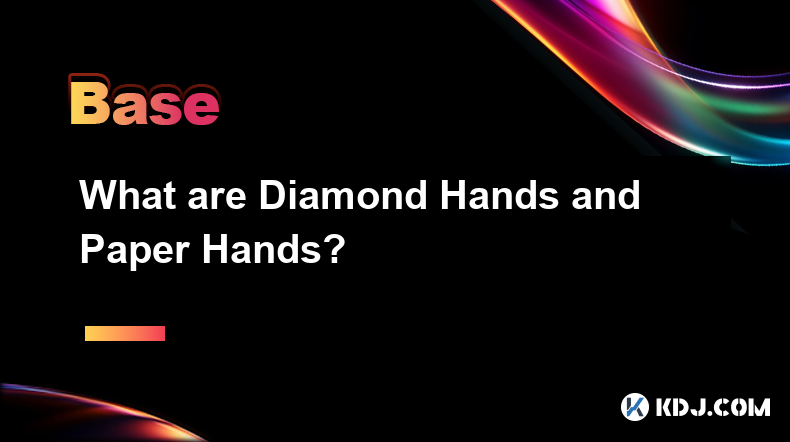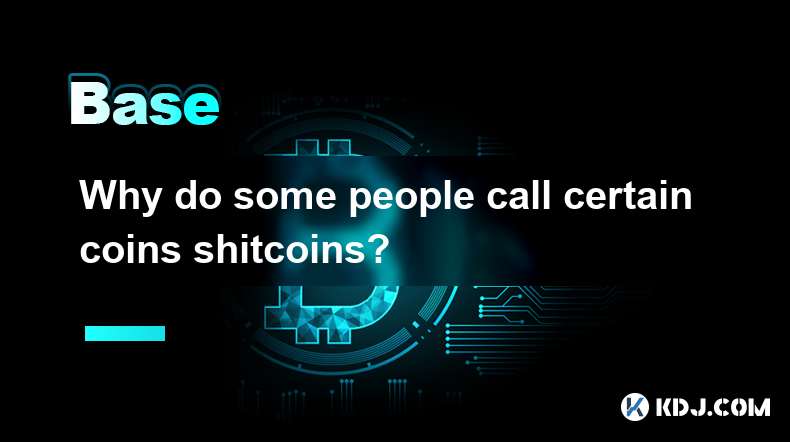-
 Bitcoin
Bitcoin $84,150.1656
0.11% -
 Ethereum
Ethereum $1,564.1601
-2.68% -
 Tether USDt
Tether USDt $0.9999
0.00% -
 XRP
XRP $2.0833
-1.96% -
 BNB
BNB $582.7072
-0.15% -
 Solana
Solana $130.3232
1.88% -
 USDC
USDC $0.9999
0.01% -
 TRON
TRON $0.2505
-0.07% -
 Dogecoin
Dogecoin $0.1536
-1.01% -
 Cardano
Cardano $0.6073
-1.91% -
 UNUS SED LEO
UNUS SED LEO $9.4081
0.54% -
 Chainlink
Chainlink $12.1626
-1.68% -
 Avalanche
Avalanche $18.7348
-3.21% -
 Stellar
Stellar $0.2349
-1.41% -
 Toncoin
Toncoin $2.8754
-2.36% -
 Shiba Inu
Shiba Inu $0.0...01165
-1.28% -
 Sui
Sui $2.0768
-2.13% -
 Hedera
Hedera $0.1564
-1.75% -
 Bitcoin Cash
Bitcoin Cash $318.9487
-1.64% -
 Litecoin
Litecoin $74.4611
-0.92% -
 Polkadot
Polkadot $3.5322
-1.67% -
 Dai
Dai $1.0000
0.00% -
 Hyperliquid
Hyperliquid $15.5601
2.40% -
 Bitget Token
Bitget Token $4.3063
0.37% -
 Ethena USDe
Ethena USDe $0.9993
0.02% -
 Pi
Pi $0.6022
-8.97% -
 Monero
Monero $217.5750
1.55% -
 Uniswap
Uniswap $5.0973
-2.48% -
 OKB
OKB $51.3150
0.39% -
 Pepe
Pepe $0.0...07109
1.50%
What is Coin Mixing and its principle?
Coin mixing enhances privacy by pooling and redistributing cryptocurrencies, making it hard to trace funds on public blockchains like Bitcoin.
Apr 07, 2025 at 11:00 pm

Coin mixing, also known as coin tumbling or coin laundering, is a process used to enhance the privacy and anonymity of cryptocurrency transactions. The primary goal of coin mixing is to break the traceability of funds, making it difficult for external observers to link the source of the funds to their final destination. This article will delve into the concept of coin mixing, its principles, and how it operates within the cryptocurrency ecosystem.
What is Coin Mixing?
Coin mixing is a service that pools together cryptocurrencies from multiple users and then redistributes them in a way that obscures the trail of the original coins. This process is particularly popular among users of Bitcoin and other cryptocurrencies that operate on public blockchains, where transaction details are visible to anyone. By using a coin mixing service, users aim to protect their financial privacy and prevent others from tracking their spending habits or the source of their funds.
The Principle Behind Coin Mixing
The fundamental principle of coin mixing revolves around the concept of anonymity through mixing. When users send their coins to a mixing service, these coins are combined with those from other users. The service then redistributes the mixed coins back to the users, but in a manner that does not directly correlate the output addresses with the input addresses. This mixing process creates a layer of complexity that makes it challenging to trace the flow of funds from sender to receiver.
How Coin Mixing Works
To understand how coin mixing works, let's break down the process into its core components:
- User Deposits: Users send their cryptocurrencies to a designated address provided by the mixing service. This address is often shared among multiple users to enhance the mixing effect.
- Mixing Pool: The mixing service collects these deposits into a pool. The larger the pool, the more effective the mixing process becomes, as it increases the number of possible paths for the funds.
- Redistribution: After a certain period, the mixing service redistributes the funds to new addresses specified by the users. These new addresses are typically generated by the users themselves to ensure that they retain control over their funds.
- Anonymity Layer: The redistribution process is designed to break the link between the input and output addresses. This is achieved by sending the funds through multiple intermediate addresses or by using techniques like time delays and random transaction sizes.
Types of Coin Mixing Services
There are several types of coin mixing services available, each with its own approach to enhancing privacy:
- Centralized Mixers: These are operated by a single entity that manages the mixing process. Users trust the centralized service to handle their funds securely and anonymously.
- Decentralized Mixers: These operate on a peer-to-peer basis, where users' funds are mixed without the need for a central authority. Decentralized mixers often use smart contracts to automate the mixing process.
- CoinJoin: This is a specific type of mixing where multiple users collaboratively create a single transaction with multiple inputs and outputs. This method is often used in Bitcoin to enhance privacy without relying on a third-party service.
Benefits of Coin Mixing
Coin mixing offers several benefits to users within the cryptocurrency ecosystem:
- Enhanced Privacy: By breaking the traceability of funds, coin mixing helps users maintain their financial privacy. This is particularly important for individuals who wish to keep their financial activities confidential.
- Protection Against Surveillance: Coin mixing can protect users from surveillance by governments, financial institutions, or other entities that might be monitoring the blockchain.
- Prevention of Transaction Analysis: By obscuring the trail of funds, coin mixing makes it difficult for attackers to perform transaction analysis and identify patterns in a user's spending behavior.
Risks and Considerations
While coin mixing can enhance privacy, it also comes with certain risks and considerations:
- Trust in Service Providers: Users must trust the mixing service to handle their funds securely and not to keep records that could compromise their anonymity.
- Regulatory Scrutiny: Some jurisdictions view coin mixing services with suspicion, as they can be used for illicit activities. Users should be aware of the legal implications of using such services in their region.
- Potential for Delays: The mixing process can introduce delays in transaction times, as the service may hold funds for a period to enhance the mixing effect.
Frequently Asked Questions
Q: Can coin mixing be used to launder money?
A: While coin mixing can be used to obscure the trail of funds, it is not inherently designed for money laundering. However, it can be misused for such purposes, which is why some jurisdictions have strict regulations around the use of mixing services.
Q: How do I choose a reliable coin mixing service?
A: When choosing a coin mixing service, consider factors such as the service's reputation, the level of anonymity it provides, the fees it charges, and whether it has been audited for security. It's also important to read user reviews and understand the service's privacy policy.
Q: Is coin mixing legal?
A: The legality of coin mixing varies by jurisdiction. In some countries, it is legal to use mixing services for enhancing privacy, while in others, it may be subject to strict regulations or even prohibited. Users should research the laws in their region before using such services.
Q: Can coin mixing be detected on the blockchain?
A: While coin mixing aims to obscure the trail of funds, sophisticated blockchain analysis techniques can sometimes detect patterns associated with mixing services. However, the effectiveness of these detection methods varies, and many mixing services employ advanced techniques to minimize the risk of detection.
Disclaimer:info@kdj.com
The information provided is not trading advice. kdj.com does not assume any responsibility for any investments made based on the information provided in this article. Cryptocurrencies are highly volatile and it is highly recommended that you invest with caution after thorough research!
If you believe that the content used on this website infringes your copyright, please contact us immediately (info@kdj.com) and we will delete it promptly.
- Russia Might Enter the Stablecoin Market After Wallets Connected to Russian Users and Holding USDT Were Frozen Last Month
- 2025-04-17 03:35:19
- XRP continues to act as an interest of traders with its price trapped in a falling wedge formation.
- 2025-04-17 03:35:19
- Ethereum Whales Dump $1.8B in ETH as Price Stalls
- 2025-04-17 03:30:15
- Dexsport, BetDEX, Bitsler, Coins.Game, and Chips.gg Are Revolutionizing the Online Gambling Landscape
- 2025-04-17 03:30:15
- title: Welcome to The Protocol, CoinDesk's weekly wrap-up of the most important stories in cryptocurrency tech development.
- 2025-04-17 03:30:13
- Bitcoin (BTC) Rally Stalled by Jerome Powell's Warning on Trump Tariffs
- 2025-04-17 03:30:13
Related knowledge

What does Floor Price mean in the NFT market
Apr 17,2025 at 12:42am
The term Floor Price is a critical concept within the NFT (Non-Fungible Token) market, serving as a key indicator for both buyers and sellers. In essence, the floor price represents the lowest price at which an NFT from a particular collection is currently listed for sale on a marketplace. This price point is crucial for understanding the perceived valu...

What is Alpha? How to find Alpha opportunities?
Apr 16,2025 at 12:42pm
What is Alpha?Alpha is a term widely used in the financial world, including the cryptocurrency market, to describe the ability of an investment to outperform a benchmark. In the context of cryptocurrencies, alpha refers to the excess return an investor achieves over the market's average return. For example, if the overall crypto market grows by 10% in a...

Why do cryptocurrency enthusiasts like to say GM?
Apr 16,2025 at 06:21am
In the world of cryptocurrency, the term 'GM' has become a popular greeting among enthusiasts. GM stands for 'Good Morning,' and its widespread use within the crypto community has a deeper significance than just a simple greeting. This article delves into the reasons why cryptocurrency enthusiasts like to say GM, exploring its origins, cultural signific...

What do WAGMI and NGMI mean?
Apr 16,2025 at 08:08pm
In the world of cryptocurrency, you might often come across the acronyms WAGMI and NGMI. These terms have become part of the crypto slang and are frequently used in discussions, tweets, and forums related to digital currencies. Let's delve into what these terms mean, their origins, and how they are used within the crypto community. Understanding WAGMIWA...

What are Diamond Hands and Paper Hands?
Apr 16,2025 at 10:42am
In the world of cryptocurrencies, the terms Diamond Hands and Paper Hands are frequently used to describe the behavior and mindset of investors, particularly in volatile markets. These terms originated from online communities and have become a significant part of the crypto lexicon, often used to describe the level of resilience and commitment an invest...

Why do some people call certain coins shitcoins?
Apr 17,2025 at 03:21am
Understanding the Term 'Shitcoin'The term 'shitcoin' is a colloquialism within the cryptocurrency community that is used to describe cryptocurrencies that are perceived as having little to no value or potential. It is a derogatory term, often used to express disdain or skepticism about the viability of certain digital assets. The use of 'shitcoin' is su...

What does Floor Price mean in the NFT market
Apr 17,2025 at 12:42am
The term Floor Price is a critical concept within the NFT (Non-Fungible Token) market, serving as a key indicator for both buyers and sellers. In essence, the floor price represents the lowest price at which an NFT from a particular collection is currently listed for sale on a marketplace. This price point is crucial for understanding the perceived valu...

What is Alpha? How to find Alpha opportunities?
Apr 16,2025 at 12:42pm
What is Alpha?Alpha is a term widely used in the financial world, including the cryptocurrency market, to describe the ability of an investment to outperform a benchmark. In the context of cryptocurrencies, alpha refers to the excess return an investor achieves over the market's average return. For example, if the overall crypto market grows by 10% in a...

Why do cryptocurrency enthusiasts like to say GM?
Apr 16,2025 at 06:21am
In the world of cryptocurrency, the term 'GM' has become a popular greeting among enthusiasts. GM stands for 'Good Morning,' and its widespread use within the crypto community has a deeper significance than just a simple greeting. This article delves into the reasons why cryptocurrency enthusiasts like to say GM, exploring its origins, cultural signific...

What do WAGMI and NGMI mean?
Apr 16,2025 at 08:08pm
In the world of cryptocurrency, you might often come across the acronyms WAGMI and NGMI. These terms have become part of the crypto slang and are frequently used in discussions, tweets, and forums related to digital currencies. Let's delve into what these terms mean, their origins, and how they are used within the crypto community. Understanding WAGMIWA...

What are Diamond Hands and Paper Hands?
Apr 16,2025 at 10:42am
In the world of cryptocurrencies, the terms Diamond Hands and Paper Hands are frequently used to describe the behavior and mindset of investors, particularly in volatile markets. These terms originated from online communities and have become a significant part of the crypto lexicon, often used to describe the level of resilience and commitment an invest...

Why do some people call certain coins shitcoins?
Apr 17,2025 at 03:21am
Understanding the Term 'Shitcoin'The term 'shitcoin' is a colloquialism within the cryptocurrency community that is used to describe cryptocurrencies that are perceived as having little to no value or potential. It is a derogatory term, often used to express disdain or skepticism about the viability of certain digital assets. The use of 'shitcoin' is su...
See all articles























































































